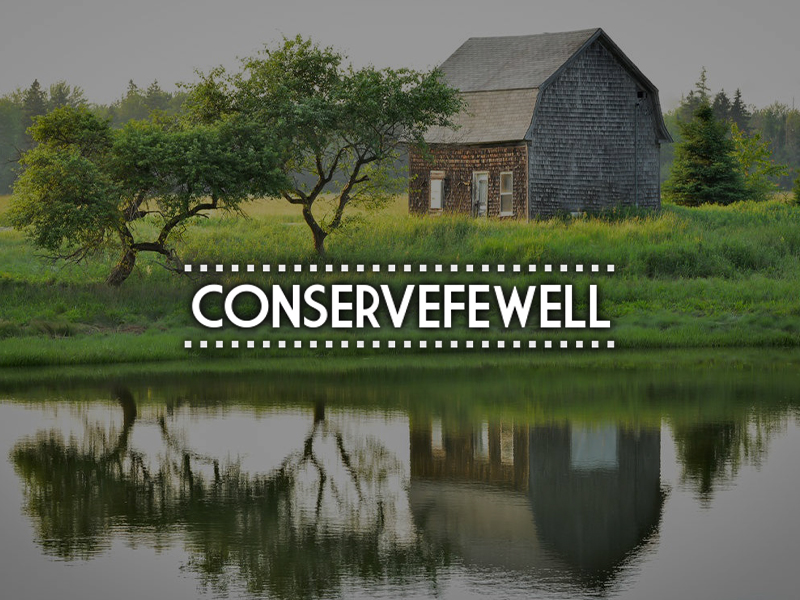By Brent Fewell
 The pros and cons of living in Washington DC are receiving all sorts of invitations to political events, fundraisers, forums, policy roundtables, and various other sundry functions, all aimed at highlighting a special need, cause or accomplishment or raising awareness of some sort. Some are more memorable than others. And yet few have as important a value as the function I attended last evening, bringing together leaders of eNGOs, agriculture, industry, and civic groups to celebrate the future of conservation, exemplifying humanity at its best, not an earthly plague as recently recounted by Sir David Attenborough.
The pros and cons of living in Washington DC are receiving all sorts of invitations to political events, fundraisers, forums, policy roundtables, and various other sundry functions, all aimed at highlighting a special need, cause or accomplishment or raising awareness of some sort. Some are more memorable than others. And yet few have as important a value as the function I attended last evening, bringing together leaders of eNGOs, agriculture, industry, and civic groups to celebrate the future of conservation, exemplifying humanity at its best, not an earthly plague as recently recounted by Sir David Attenborough.
The U.S. Water Alliance, headed by the one-and-only Ben Grumbles, hosted its annual U.S. Water Prize honoring MillerCoors, The Freshwater Trust, and Onondaga County. The American equivalent of the prestigious Stockholm Water Prize, the U.S. Water Prize, held at the beautiful headquarters of National Geographic on 17th Street NW DC, honored and recognized the leadership and inspirational stewardship of three deserving honorees for raising the bar in terms of civic and corporate environmental stewardship.
The celebration kicked off with the buoying remarks of William K. Reilly, former U.S. EPA Administrator under President George H.W. Bush, and a heavy-weight conservation champion in his own right, who spoke to the increasing challenges of communities to manage water resources and called upon the best of humanity in terms of bettering ourselves through more collaboration, innovation and technological advances. No calls for more government regulation or control. Over 300 thought leaders and conservation actors convened to celebrate the recipients and reflect upon the state of environmental conservation in the U.S..
Highlighting the recipients and a few thoughts of my own:
Onondaga County – Onondaga Lake, just on the outskirts of Syracuse, NY, is infamously known as being one of America’s most polluted lakes, due to a legacy of industrial and raw sewage pollution. However, a few years back, the local leadership, wanting to change that reputation and reality, embarked on a new beginning of sorts to clean-up its act. When you meet and get to know elected officials, like Joanne (“Joanie”) Mahoney, County Executive, and her Deputy, Matt Millea, your faith in local government is once again renewed. In 2011, Onondaga County was recognized by U.S. EPA as a green infrastructure partner for its work on “Save the Rain” and Governing Magazine named the County Executive a “Public Official of the Year”. Joanie, Matt and their team are doing exactly what so many local governments have failed to do – possess a vision and the courage to reinvest in their community’s water infrastructure and natural ecosystems. This is good government at work, and it will pay off in the end with sustainable water resources for commerce, domestic use, and recreational use, more businesses wanting to relocate to Syracuse ergo more jobs – and a better quality of life for its residents.
MillerCoors – Buy a six-pack and raise a Coors Light to the work of MillerCoors for its commitment to being good corporate stewards of the environment and the communities it serves. This beer giant is doing many good things, including cleaning up the water used to make its beer by working closely with farmers to reduce agricultural runoff, cleaning up the wastewater it produces and discharges as a byproduct of its business, and reducing the amount of water used to make its beer. Folks, this is just plain and simple good business sense on so many levels. When you save money on a raw product, protect natural resources, improve your product, and please your consumers by doing something good that makes them want to purchase and consume more of your product, that’s what I call a no-brainer. Congratulations to Kim Marotta and her winning team.
The Freshwater Trust – The tag line for the Trust is “Changing the Course of Conservation.” Headed by a thoughtful and exciting leader, unafraid to pursue innovative conservation in the face of steep obstacles, Joe Whitworth and his team truly are changing the direction of conservation. The public really needs to get behind and get to know this organization and its successful efforts to use market-based approaches – finding and leveraging the right incentives which I’ve discussed here and here before. Talking with Joe is a breath of fresh air – or rather, fresh water. Highlighted last year at a conservation conference, President Obama had this to say about their work:
A while back, I heard a story about the Rogue River in Oregon. Every year, the Rogue is filled with salmon swimming upstream to spawn. But because factories were allowed to – allowing warm water to run back into the river, the temperature was becoming too high for the salmon to survive. So to fix the problem, the town could have required the company to buy expensive cooling equipment, but that would have hurt the local economy. Instead, they decided to pay farmers and ranchers to plant trees along the banks of the river, and that helped to cool the water at a fraction of the cost. So it worked for business; it worked for farmers; it worked for salmon. And those are the kinds of ideas that we need in this country -– ideas that preserve our environment, protect our bottom line, and connect more Americans to the great outdoors.
I’m encouraged to see the new faces and future of conservation here in the U.S.. This isn’t just about protecting the environment. It’s about demonstrating courage, drive, commitment, good governance, and civic engagement to make our communities better places to live, work, recreate, and raise families. When history is written, the legacy of the leaders who convened and were honored at last evening’s event will be that of the makings of a stronger more resilient society and environment.
(Disclosure: I serve as a member of the Board of the U.S. Water Alliance, so may be a wee bit biased about the importance of its work – and am pleased that my employer, United Water, helped to underwrite the event.)

